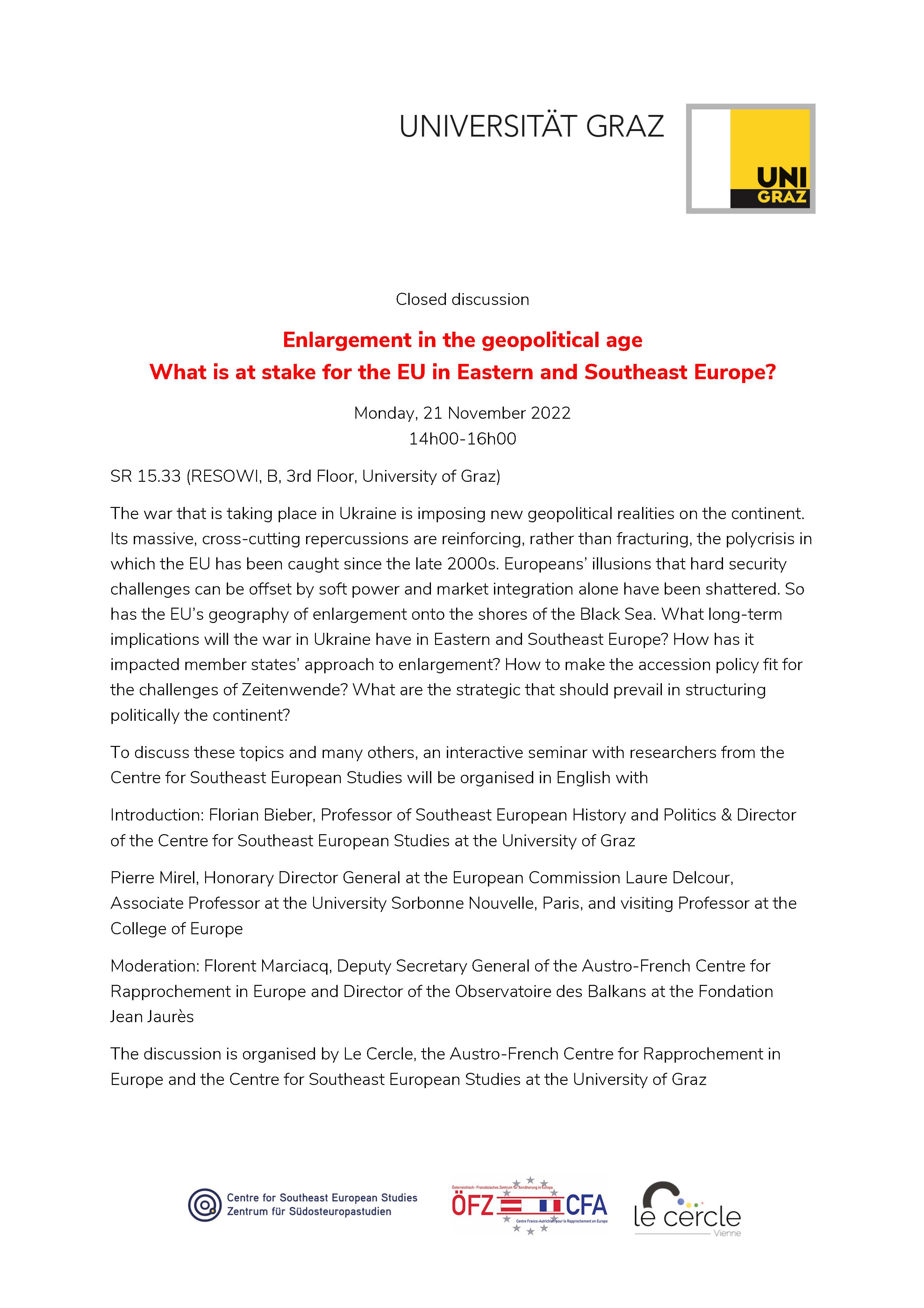The war that is taking place in Ukraine is imposing new geopolitical realities on the continent. Its massive, cross-cutting repercussions are reinforcing, rather than fracturing, the polycrisis in which the EU has been caught since the late 2000s. Europeans’ illusions that hard security challenges can be offset by soft power and market integration alone have been shattered. So has the EU’s geography of enlargement onto the shores of the Black Sea. What long-term implications will the war in Ukraine have in Eastern and Southeast Europe? How has it impacted member states’ approach to enlargement? How to make the accession policy fit for the challenges of Zeitenwende? What are the strategic that should prevail in structuring politically the continent?
To discuss these topics and many others, an interactive seminar with researchers from the Centre for Southeast European Studies will be organised in English with
Introduction: Florian Bieber, Professor of Southeast European History and Politics & Director of the Centre for Southeast European Studies at the University of Graz
Pierre Mirel, Honorary Director General at the European Commission Laure Delcour,
Associate Professor at the University Sorbonne Nouvelle, Paris, and visiting Professor at the College of Europe
Moderation: Florent Marciacq, Deputy Secretary General of the Austro-French Centre for Rapprochement in Europe and Director of the Observatoire des Balkans at the Fondation
Jean Jaurès
The discussion is organised by Le Cercle, the Austro-French Centre for Rapprochement in Europe and the Centre for Southeast European Studies at the University of Graz
